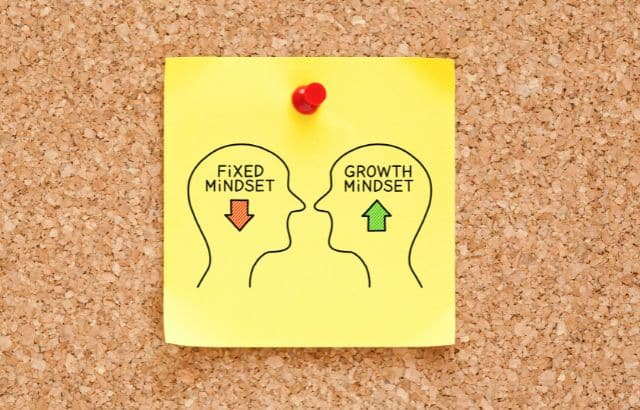Entrepreneurship is as much about personal growth as it is about business growth. As a business owner, you’re constantly evolving, learning new skills, and shaping your mindset. Self-transformation isn’t just a buzzword; it’s a necessary practice for thriving in today’s fast-paced, competitive market. In this blog, we’ll explore effective self-transformation tips for entrepreneurs, with real-world examples and insights from seasoned business strategists like Hirav Shah, who specialize in guiding entrepreneurs towards sustained success.
Table of Contents
Why Self-Transformation Matters for Entrepreneurs
Entrepreneurs are the driving force of their businesses. Your mindset, habits, and personal development directly influence your company’s trajectory. Embracing transformation allows you to navigate challenges with resilience, adapt to market trends, and lead your team effectively. This process is a constant—what works today may not work tomorrow, and staying adaptable is key to long-term success.
1. Mindset Shifts: Embrace Growth Over Fixed Beliefs
A growth mindset is crucial for overcoming obstacles and scaling your business. The way you think shapes how you act. Entrepreneurs with a fixed mindset may see failure as a setback, while those with a growth mindset see it as an opportunity for improvement.
Example:
Take Elon Musk, for instance. He embraced failure with companies like SpaceX and Tesla, using setbacks as learning experiences. By fostering a growth mindset, he transformed challenges into stepping stones for greater success.
2. Set Clear Goals and Measure Progress
Clear goals give you direction and clarity. Business strategist Hirav Shah frequently emphasizes the importance of strategic planning, especially when starting a business or taking it to the next level. For example, he suggests breaking down long-term objectives into quarterly goals that can be measured and reassessed regularly.
Example:
Suppose you want to grow your online business by 30% in the next 6 months. You could break that down into actionable steps, like increasing your lead generation by 10% per month, improving your conversion rate by 5%, and expanding your social media presence. By tracking these metrics monthly, you stay focused on your growth trajectory.
Calculation Example:
If your business currently generates $100,000 in monthly revenue, a 30% increase would mean an additional $30,000 per month. Breaking this down, you’d aim for an extra $10,000 each month through focused efforts like marketing, sales, and customer retention strategies.
3. Develop Emotional Intelligence (EQ)
As an entrepreneur, emotional intelligence is just as important as IQ. Leaders with high EQ can navigate the emotional challenges of business, from dealing with setbacks to managing relationships with clients, partners, and employees. Developing emotional intelligence involves:
- Self-awareness: Understanding your strengths and weaknesses.
- Self-regulation: Staying calm and focused in high-pressure situations.
- Empathy: Understanding and addressing the needs of your team and customers.
Example:
Jeff Bezos, founder of Amazon, has always stressed the importance of long-term thinking. His ability to stay calm in the face of criticism and setbacks reflects a high degree of emotional intelligence, which has allowed Amazon to remain a leader in e-commerce for decades.
4. Continuous Learning: Stay Ahead of the Curve
Business strategy is constantly evolving, and as an entrepreneur, you need to continuously update your skills. Business strategists like Hirav Shah suggest that entrepreneurs should invest time in learning about emerging trends, new technologies, and better management practices. Whether it’s attending workshops, reading, or networking with industry experts, continuous learning ensures you stay competitive.
Example:
Many tech entrepreneurs actively participate in conferences, webinars, or online courses to stay informed. Sundar Pichai, CEO of Google, has a background in engineering and business management, and he frequently participates in leadership development programs to sharpen his skills.
5. Master Time Management
Effective time management can make or break an entrepreneur. As a business owner, you wear many hats, from CEO to marketing lead to HR manager. One of the most effective self-transformation tips is learning how to prioritize tasks, delegate effectively, and eliminate distractions.
Example:
Tim Cook, the CEO of Apple, is known for his incredible time management skills. His daily routine involves waking up at 4:00 AM to get a head start on his day. By structuring his time, he ensures that each minute counts, allowing him to focus on both personal and business growth.
Role of Business Strategists in Self-Transformation
Business strategists play a crucial role in guiding entrepreneurs through their journey of self-transformation. Hirav Shah, an expert business strategist, emphasizes the need for entrepreneurs to develop both personal and business strategies to maintain alignment and achieve long-term success. His approach often combines personal development with actionable business strategies.
Example of Hirav Shah’s Impact:
Hirav Shah has worked with numerous entrepreneurs to reshape their business models and personal habits. He helps them map out their goals, manage their time, and improve decision-making processes. For instance, he might advise an entrepreneur to focus on cultivating a clear vision, aligning their team around that vision, and implementing operational efficiencies that lead to business growth.
FAQs on Self-Transformation for Entrepreneurs
Q1: How can I maintain motivation during difficult times?
A1: Motivation fluctuates, but persistence is key. Set smaller, achievable goals and celebrate each milestone. Additionally, lean on your network and mentorship to stay motivated. Remember, setbacks are part of the journey.
Q2: Can emotional intelligence be developed, or is it something you’re born with?
A2: Emotional intelligence can definitely be developed. It involves self-awareness, empathy, and managing emotions in both yourself and others. Practice mindfulness, reflective thinking, and engage in honest conversations to build your EQ over time.
Q3: How can I know if my business strategy is working?
A3: One way to measure effectiveness is by tracking key performance indicators (KPIs) such as revenue growth, customer retention, and profit margins. Regular reviews, like quarterly evaluations, allow you to adjust strategies based on performance.
Q4: How do I deal with failure and rejection as an entrepreneur?
A4: Rejection and failure are natural parts of entrepreneurship. The key is to learn from these experiences. Use them as an opportunity to grow, iterate, and innovate. Keep your long-term vision in focus and embrace each challenge as a lesson.
Conclusion: Transform Your Business by Transforming Yourself
Entrepreneurship is not just about running a business; it’s about personal growth and self-transformation. By focusing on mindset shifts, goal-setting, emotional intelligence, continuous learning, and time management, you can elevate not just your business but your life. Seek guidance from seasoned strategists like Hirav Shah, who can provide actionable insights and tailored strategies for personal and professional success.
Remember, true business success begins with self-transformation. The more you grow as an individual, the more your business will thrive.
I hope this helps! Let me know if you’d like me to tweak or add anything else!

















